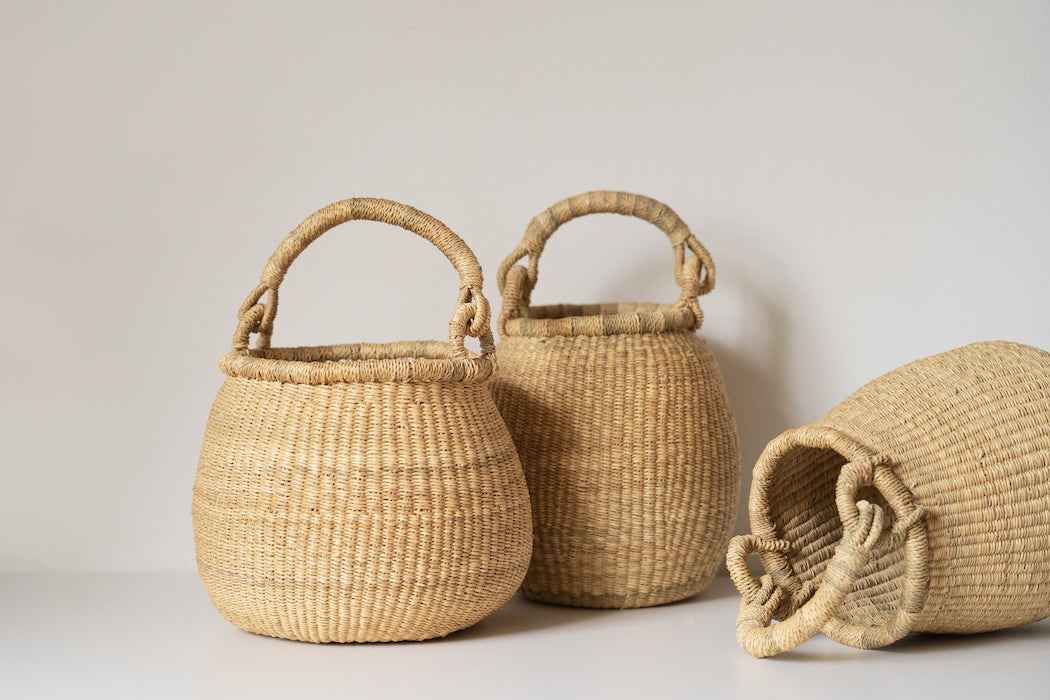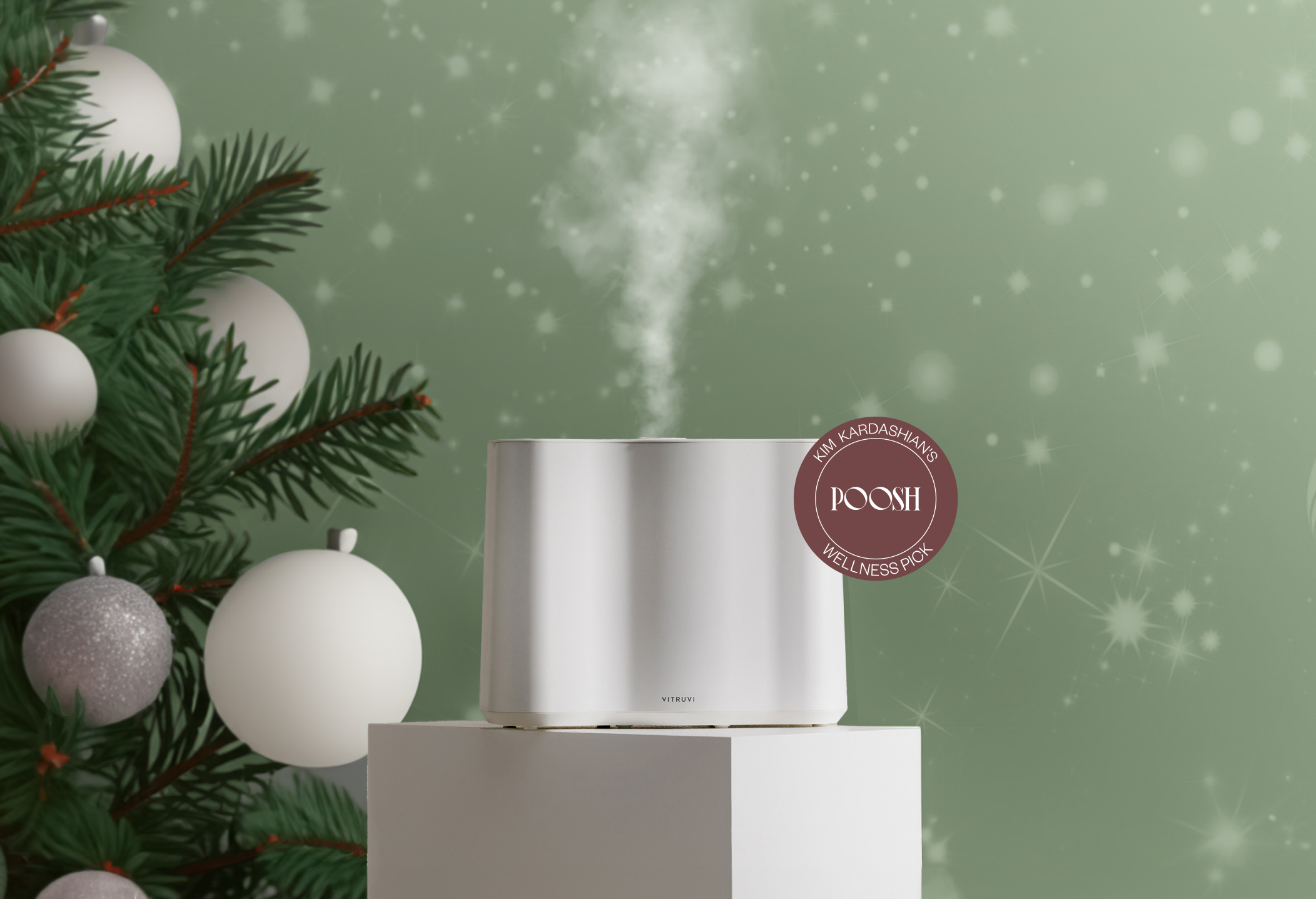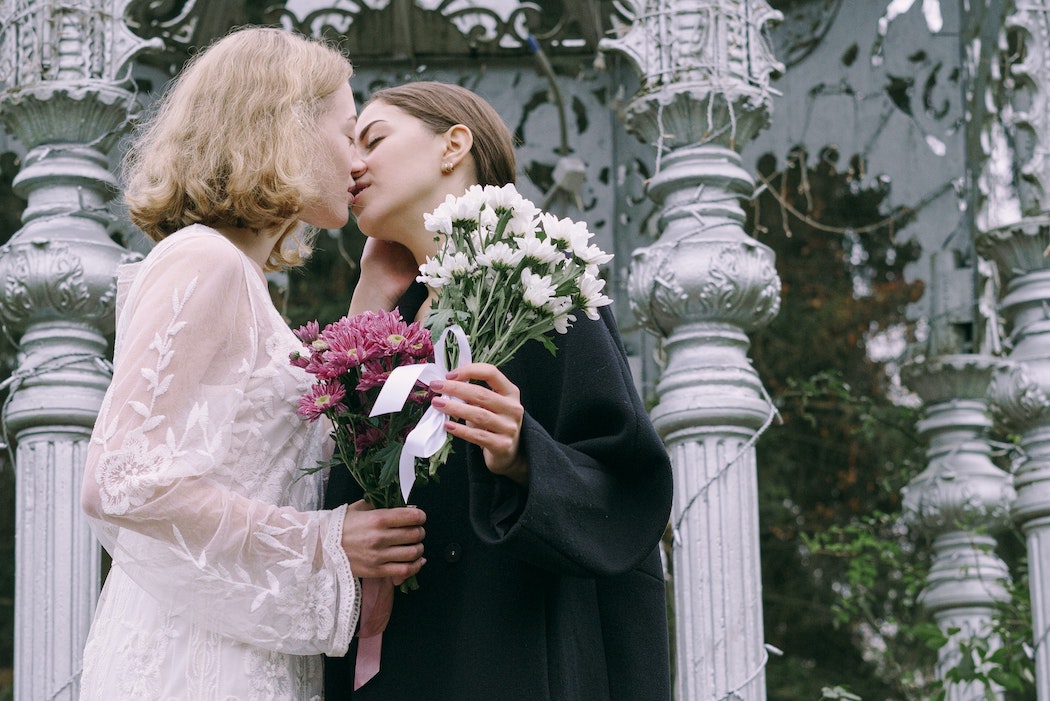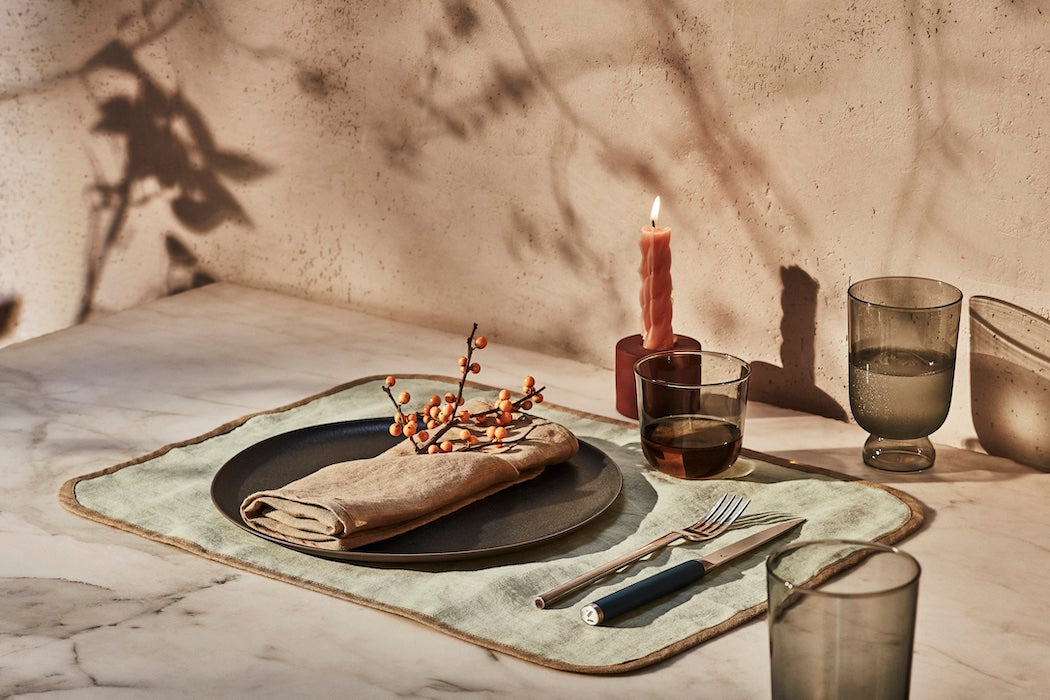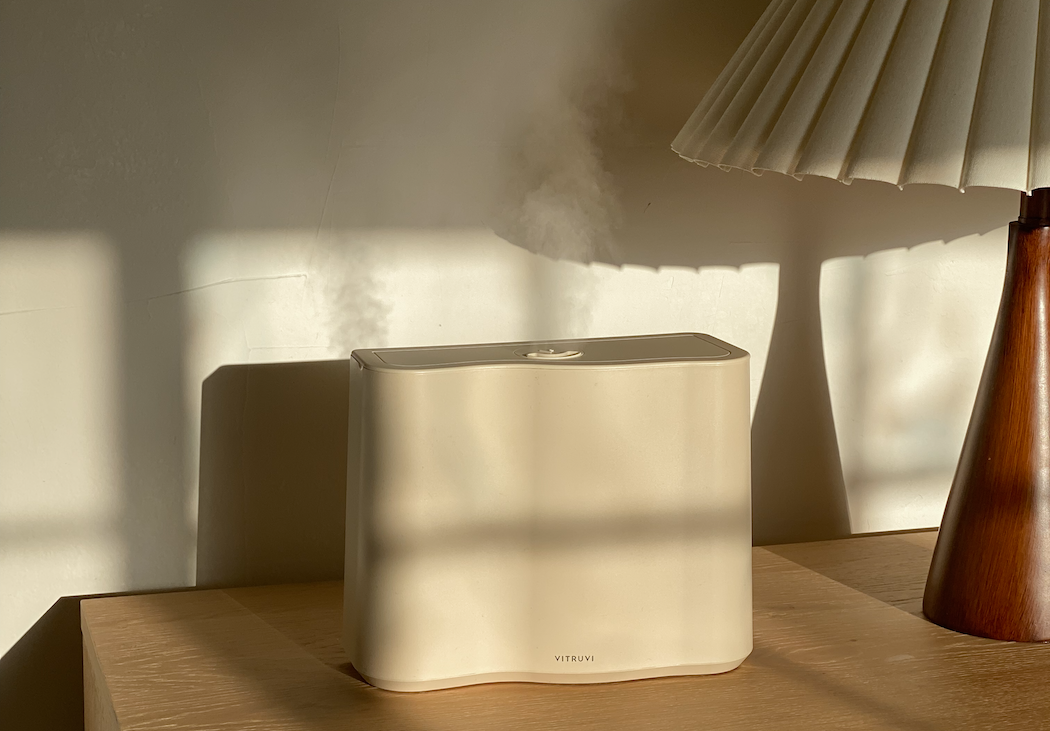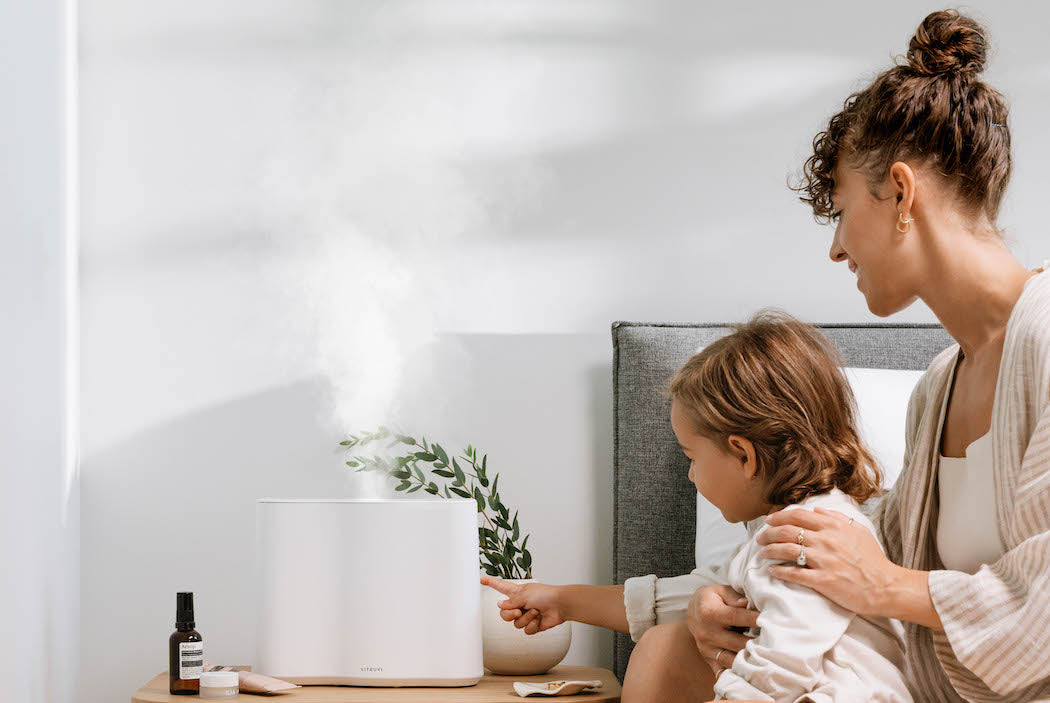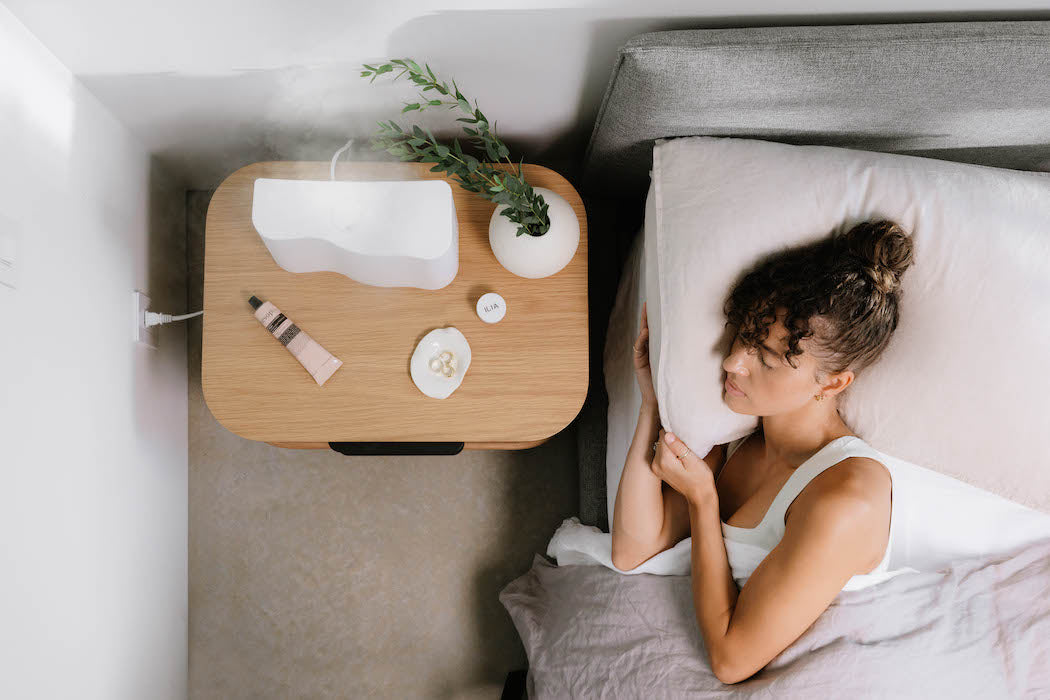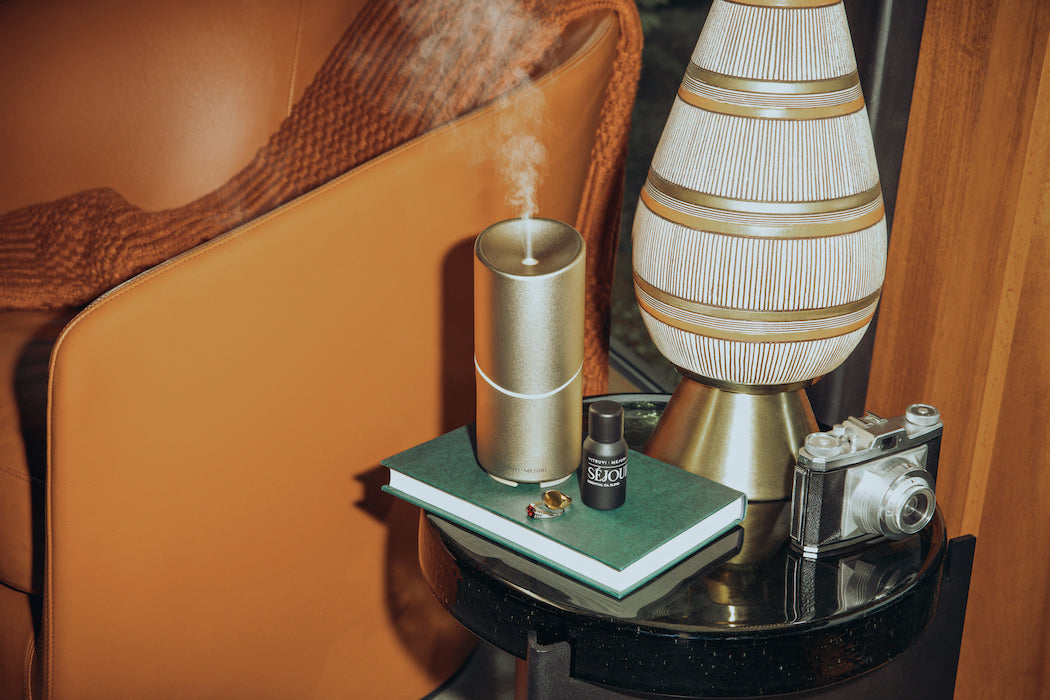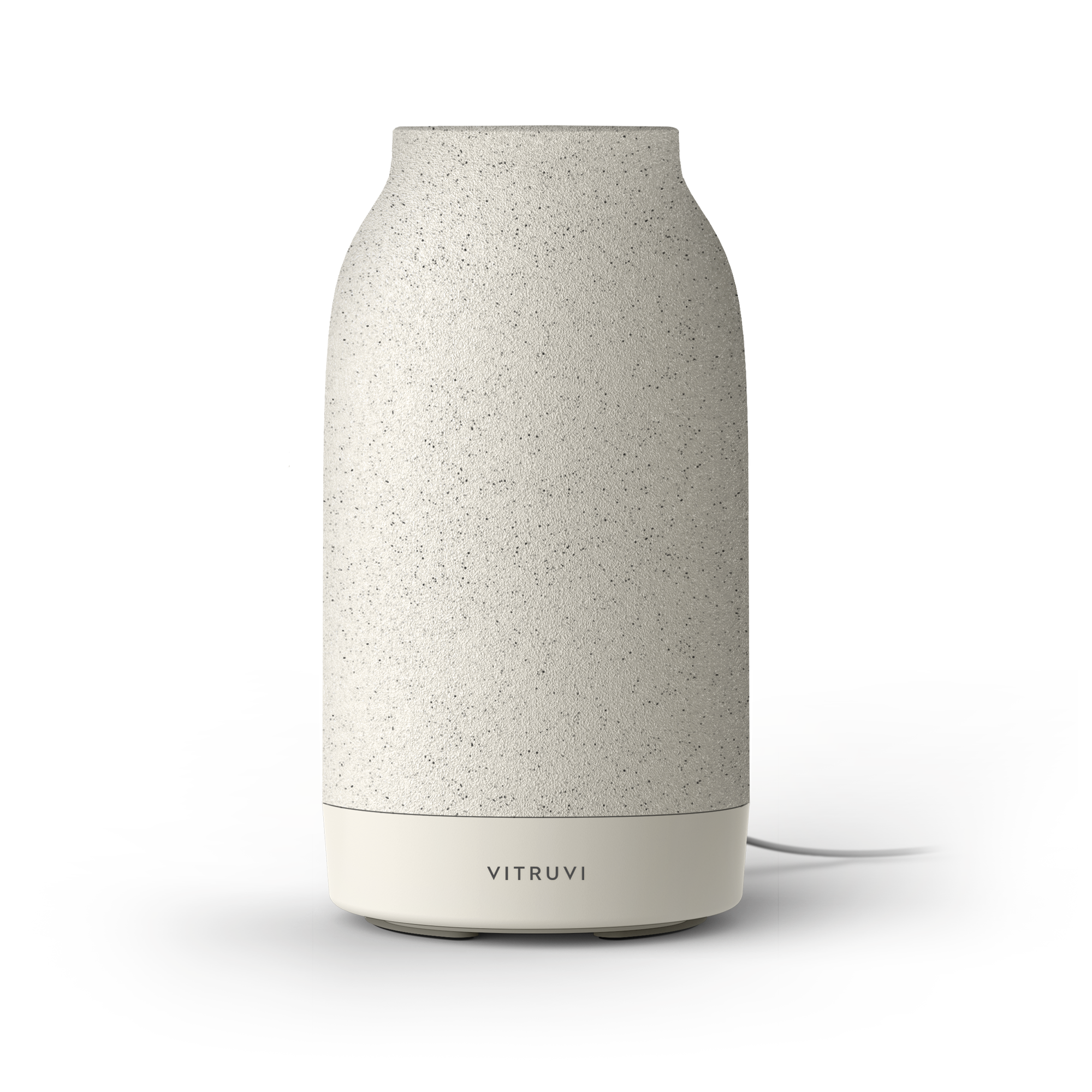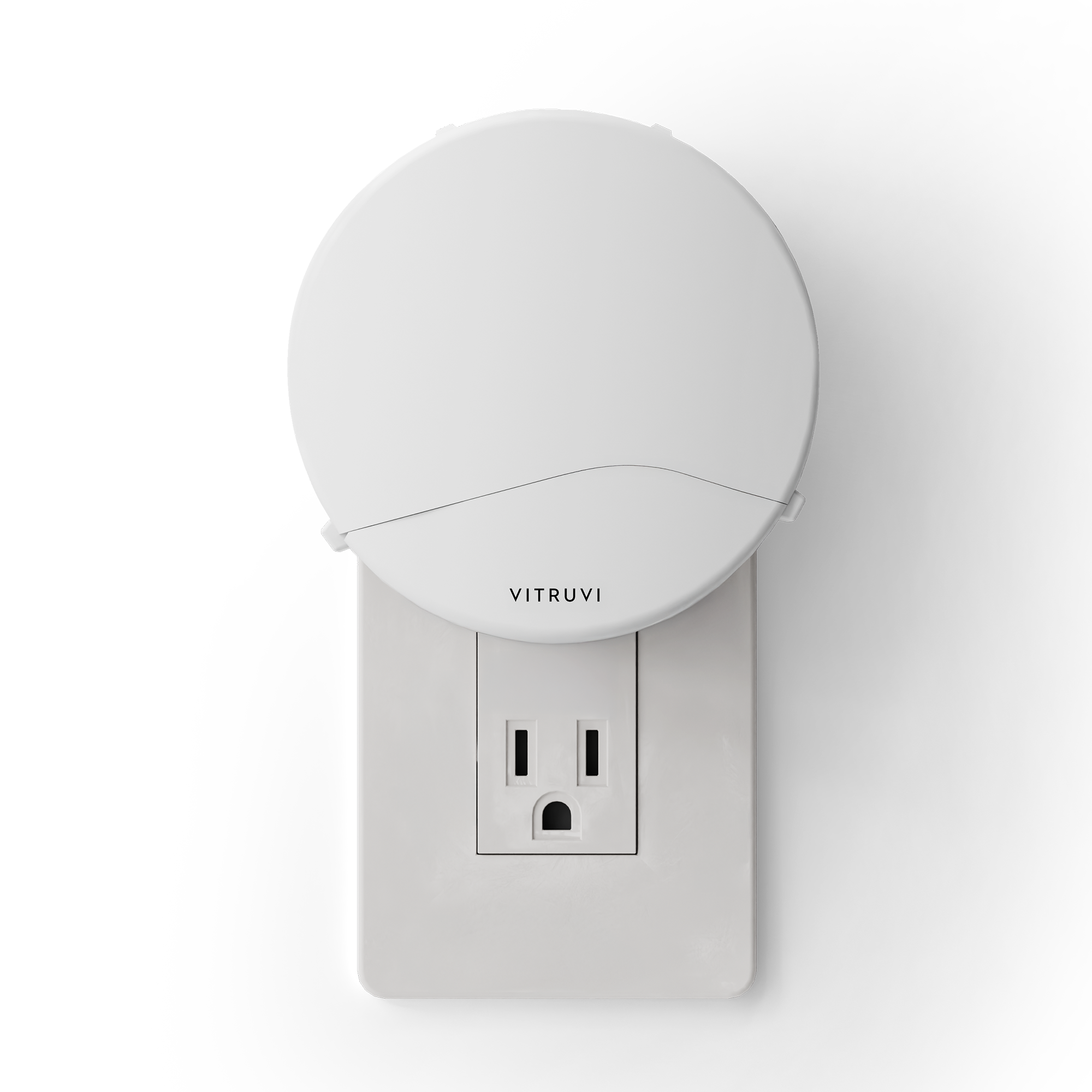Chessa Osburn and Mary Jane Bolton converse like lifelong friends, and that’s because they are. The business partners first met in high school, and although they lost touch for a number of years, they ended up back in each other’s lives in a big way—and now it’s as if no time has passed. Today they run Twenty One Tonnes, an online shop and brand that works with artisans around the world to create beautifully-crafted home objects. From weaved baskets and bags to luxurious rugs and water jugs, it’s a modest but intentional celebration of international craft.
Both raised in Vancouver, the elegant women play off of each other and have an undeniable mutual respect that runs through everything they do. Even though Osburn is based in Vancouver while Bolton now lives in Los Angeles, they clearly have no issues with communication, creation, or vision.
Over drinks at Vancouver’s Medina Cafe on a rare occasion they are both in the city together, Osburn and Bolton look back on how far this former side-hustle has come.
What brought you two together?
Bolton: We actually went to high school together, but beyond that our mothers were friends as well. So we actually go very, very far back. And in fact, our brothers are the same age and are also friends. So it’s very much a family connection. But the company began with Chessa going to Morocco.
Osburn: Yeah, I studied international development and then I worked in East Africa for a year in my mid-twenties, and then I came back to Vancouver and ended up working still in development, but more community development in the Downtown Eastside. But I kind of was always craving that connection to artisan communities. We had done one trip to Morocco and I thought there was just so much potential to bring stuff in to Vancouver, so I did a solo trip to begin with in 2010 and I just went hunting for products. I brought back three products and built a tiny little website off the side of my desk and had a whole other job and career going. It was a tiny operation for years, it was just me; it was always a very small, limited product offering. It was my excuse to travel, go somewhere new, seek out people who were making really beautiful things and bring them back. And then MJ [Mary Jane] approached me.
Bolton: I had been living in LA but I was moving back to Vancouver [she has since moved back to LA]. I had been working in film when Chessa started the business and I was looking to do something else. We’re both design-obsessed and aesthetically very compatible.
Osburn (to Bolton): You have more of a sales background than I do. I always just wanted to find things and I never wanted to sell the things, which is a vital part of the operation. [laughs]
Bolton: It is actually pretty crucial. [laughs]
Osburn: So MJ came and was like, “Let’s team up, we can do this together. I can bring this whole new skillset to the operation you currently have.” So we teamed up and decided to make it our focus and just go for it full-time.
Who are some of the artisans you’ve worked with?
Bolton: We did a collaboration with Notary Ceramics, she’s wonderful, she’s in Portland. Julia Mior we’ve done some stuff with, she’s amazing, so talented. And then we started working with this wonderful group of women in Ghana and that is the main part of our business now, which is the basketry. We both love basketry and we started heading more in that direction, and it’s kind of just organically evolved. We started collaborating on shapes that are exclusive to us, so now we wholesale in shops as well as retail from our website.
It’s actually pretty amazing how much we can be in constant contact with them [the weavers] now. Because we are both moms, motherhood has shaped the business—but because of the time that we live in, we can be in contact with these makers on a daily basis via WhatsApp and it totally works for us. We go back and forth on ideas and all the creative and it’s pretty awesome.
Do you work exclusively with women?
Osburn: Women tend to be the ones who use materials that are found in their own backyards to make useful craft, so it ends up being exclusively women that we work with. It’s a happy discovery that that’s what’s happening.
What’s next for the company?
Osburn: We’re trying to figure out how to span the border [from Canada into the States]. We were in New York for the Architectural Digest Design Show and there was so much surprising positive response, which was so exciting because we’re this tiny little company.
Bolton: Hamish Bowles mentioned us in his top 10. He came up to the booth and we both looked at each other like, “That is Hamish Bowles! Hamish Bowles is looking at our booth right now!”
Osburn: It was so exciting.
Bolton: We both realized we’ve been aware of him since we were like 13 years old. We were losing our minds. And no one else around knew who he was. He asked a lot of questions and was really interested in what we were doing and loved our booth, and then two days later we were in his top 10 in Vogue online.
Osburn: It often feels like it’s just the two of us and we’re just plugging away at it, so sometimes you’re like, “What are we doing?” So it was this lovely reminder that we’re on the right track, keep going with it.
How important is it to you that you’re supporting women around the world by helping them provide for themselves and their families?
Osburn: I think that’s everything.
Bolton: It’s everything. We both feel very, very deeply and strongly.
Is there anything else you’d like to talk about?
Bolton: The support of our moms. They both have been our unofficial employees. They’ve been really, really supportive in many ways. They’re both here [in Vancouver]. My mom will fly out to LA to take care of my son so I can go to things like the market in New York; they have worked in our pop-up shops, and my sister and cousin have worked in our shops. We’re so small, our family is so involved. We both have really close families.
(To Osburn) When you initially started importing stuff, it was our moms that brought us together.
Osburn: They actively brought us back together.
This interview has been edited and condensed.

